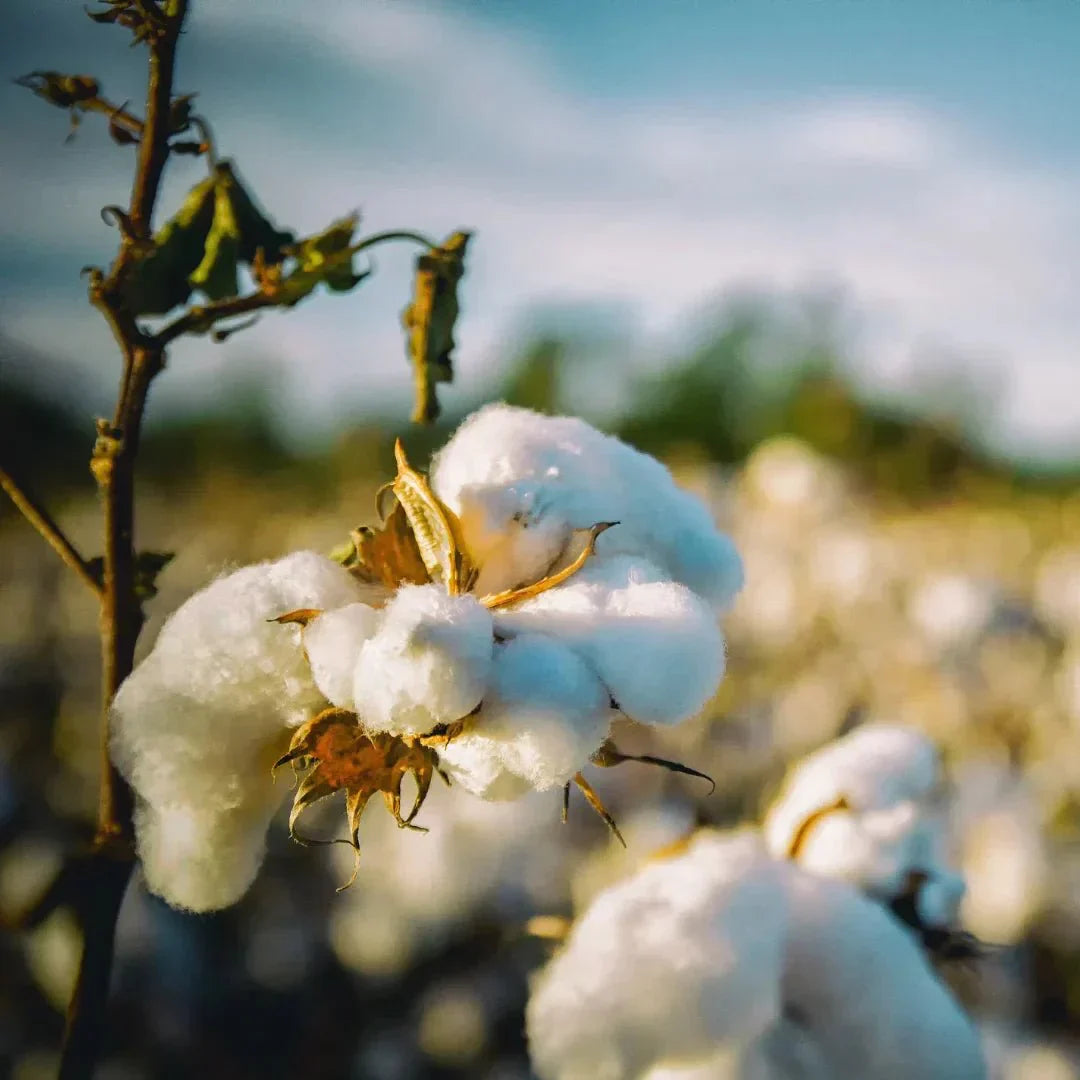
Benefits of Organic Cotton
BY NAMUBAKShare
Organic cotton is grown on certified lands free of toxic substances and all types of pesticides and insecticides .
Organic farming is based on crop rotation rather than using artificial fertilizers.
It also takes special care of the workers who carry out these crops, ensuring decent working conditions.
Conventional cotton farming , unlike organic farming, uses about 25% of the world's manufactured insecticides and more than 10% of its pesticides .
These products not only combat cotton pests and disrupt the natural balance of the soil, but they also decimate beneficial insect populations and cause significant harm to people who come into contact with them.
Soil is a living ecosystem filled with diverse organisms that work in a balanced and cooperative manner, allowing for the normal growth of crops.
This is not a dead entity to which toxic petroleum-derived chemicals should be added in order to maximize commodity production. The destructive power of these techniques must be carefully considered, taking into account the negative consequences they will leave for future generations.
The Problem of Dyeing
Conventional cotton is bleached before being dyed. Chlorine, hydrogen peroxide, dioxin, and formaldehyde are used, among many other harmful compounds . Also, heavy metals such as chromium, copper, and zinc are used in the dyeing of common cotton, and nickel is used in the manufacture of brooches. highly polluting and proven to be harmful to people's skin .
Excessive pesticide use has a significant impact on both producers and the environment, as well as on those who wear non-organic cotton clothing or shoes.
Chemicals commonly used in conventional cotton are implicated in groundwater contamination . They also have a direct impact on the health of producers and very often have an adverse effect on the skin of those who manufacture or use clothing and products.

Conventional cotton creates poverty.
In Vidarbha, too known as the “ Cotton Belt ” In India, 4,000,000 hectares have undergone the transition to genetically modified (GMO) cotton crops.
The price of cotton seeds increased from Rs 7/kg to Rs 1,700/kg after the introduction of GMO Bt cotton. GMO cotton is also vulnerable to pests , and as a result the use of pesticides, which carries an additional cost, has increased in 13 times during the same period.
Farmers have been trapped in a vicious cycle of debt due to their increasing reliance on monocultures and the loss of crop biodiversity , the growing dependence on non-renewable seeds and the monopolies that provide them with services, the chemical materials needed to support GMO cotton, and the resulting decline in soil fertility.

THE BENEFITS OF ORGANIC COTTON.
Every time we use organic cotton products, We reduce the possibility of allergic reactions, our skin breathes better, feels better, and we contribute to the care of our ecosystem.
The use of organic cotton clothing for babies is highly recommended , as their delicate skin requires special care and extra softness from fabrics that come into direct contact with their skin, especially for those with eczema and one of its most common forms: atopic dermatitis.
100% organic cotton it is much softer than common cotton, allows the skin a increased ventilation and breathing . Plus, it feels good to know that when you use organic cotton products is contributing to the care of people and the Planet.
Organic cotton uses only natural products, providing benefits to producers, the environment, and consumers:
- Benefits for producers: It is non-toxic, thus preserving the health of producers harmed by inhalation and contact with chemicals commonly used in conventional agriculture.
- Environmental benefits : The absence of pesticides and the use of non-genetically modified (non-GMO) cotton allows for greater respect for natural resources and the ecosystem.
- Consumer benefit : Using organic cotton prevents allergies related to the misuse of chemicals. The absence of toxic residues makes it softer and more beneficial to the skin.

